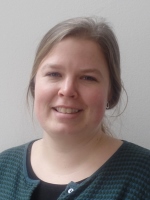Silje Anderdal Bakken forsvarer sin ph.d.-afhandling på Sociologisk Institut

Kandidat
Silje Anderdal Bakken, Sociologisk Institut, Københavns Universitet
Titel
Drug dealing on social media:
A sociological study of risk, trust, and capital in illegal drug markets
Bedømmelseskomité
- Lektor Lasse Liebst, Sociologisk Institut , Københavns Universitet (chair)
- Professor Judith Aldridge, University of Manchester, UK
- Professor Thomas Holt, Michigan State University, USA
Vært
Ph.d.-programleder Bente Halkier
Tid og sted
8. juni 2022, kl. 13:00
Københavns Universitet, Det Samfundsvidenskabelige Fakultet,
Øster Farimagsgade 5, 1353 København K, CSS 35.1.06.
Vær opmærksom på, at forsvaret foregår på engelsk.
Ph.d.-afhandlingen vil være tilgængelig gennnem Academic Books som e-publikation. Det vil også være muligt at læse den på Sociologisk Institut, lokale 16.1.23.
Efter forsvaret er instituttet vært ved en reception i lokale 16.2.55 med start kl. cirka 16.00
Resumé (in english)
This dissertation examines the use of social media platforms to market and sell illegal drugs and discusses how these platforms and the ways drug sales are negotiated are changing illegal drug markets more broadly. Drawing on a sociological perspective, the analysis focuses on how dealers sell drugs, how they present themselves, and what competencies they need to succeed in these markets. The data consists of an online ethnography and semi-structured interviews with Nordic drug market participants, and is framed theoretically through the sociological concepts of risk, trust, and capital. Reflections are also offered on the use of app-based textual interviews.
First, this dissertation finds that social media drug dealing is shaped by both the digital context and the physical, local contours of the market. Platform layouts such as Facebook profiles and Instagram posts dictate sellers’ self-presentations and marketing options, while locally based risk perceptions and cultural influences also shape sellers’ online behaviors like risk taking and who to trust. This is a critical finding of the dissertation + that despite these social media platforms being global – there are important local differences in the ways drug dealing interactions takes place on these.
Second, the dissertation demonstrates how the use of digital communication platforms to deal drugs has changed illegal drug markets more broadly by introducing new sets of skills. Market actors now have to be able to apply digital communication tools when dealing drugs. This opens the way for new actors to enter these illegal markets, without first having to have the right street or social capital (as is needed in physical drug markets).
ZOOM Link
Det er muligt at deltage via zoom: Klik her (åbner en halv time før)
